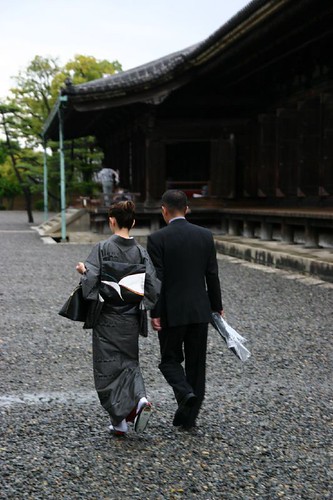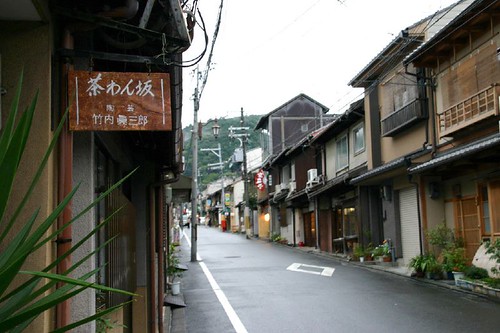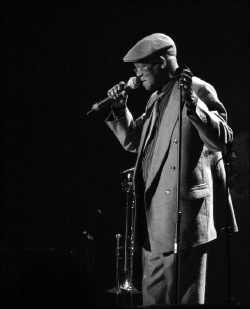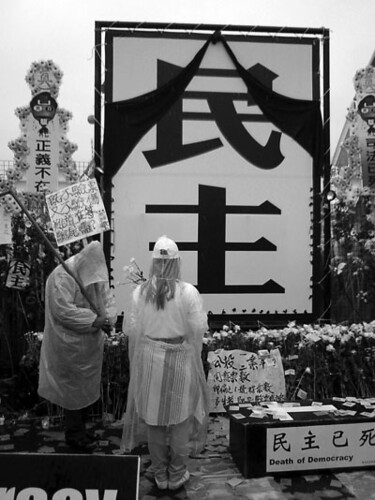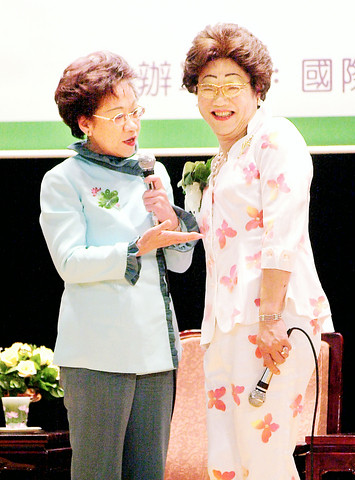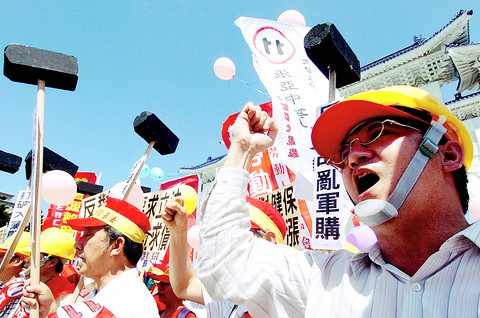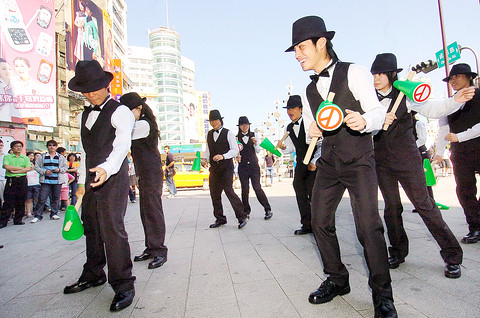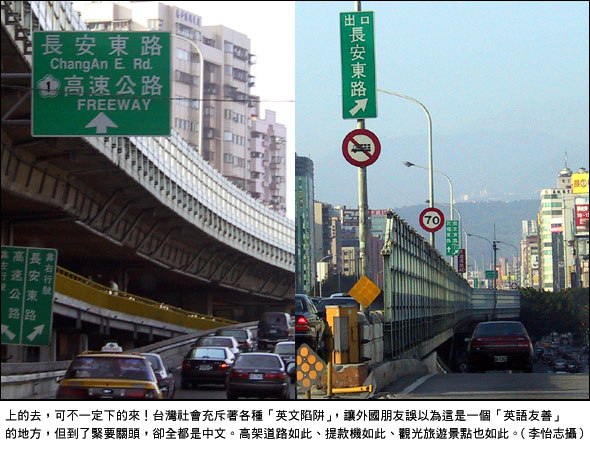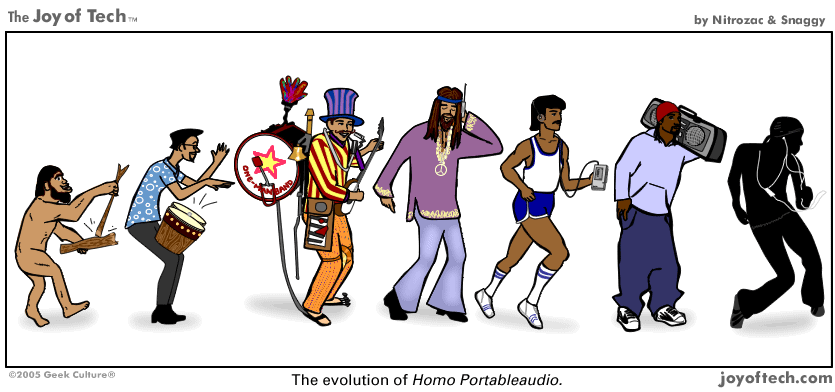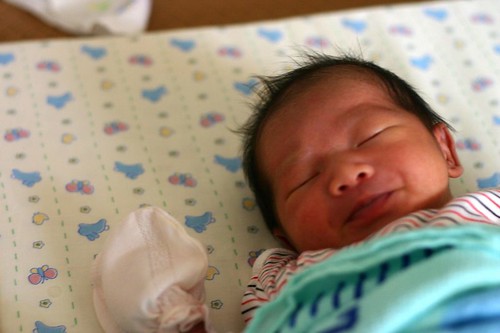And this time in a interview over Indian national television, he has managed in no more than several sentences, refer to his own people as "relatively educated" and "not very knowledgeable". If Singaporeans are by his definition, "relatively educated" and "not very knowledgeable", then may I ask by who's design that this state of affairs came to be? I suppose the imaginative education policies of the PAP government for the past two decades has nothing to with it, right?
Even if he was referring to the intellectual level of Singaporeans when he was "being knocked about by the communists", one sudders to wonder if our respected leader still views the average Singaporean in the same light today.
It's election time now in Taiwan, escalating to a fever pitch as voting starts on Saturday. The incumbents are all town now in their campaign vehicles blaring, all bowing and shaking hands with the voters. At election time, when victory is only a matter of several hundred or thousand votes, the voter is king. But when any one party has welded power for enough time, and consolidation of the kingdom starts to take place (spelt G-R-C), the importance of the voter starts to diminish in the eyes of the ruling party and might even decay to the extent of "peasant". One sincerely hopes that this is not the case, but the evidence is overwhelming.
"He who lives by the sword, dies by the sword", goes the saying. Perhaps our dear MM (or should we call him dear M&M) should consider not exerting himself so much, then perhaps respect for his legacy would not start to melt like chocolate in the mouth.
SINGAPORE : Minister Mentor Lee Kuan Yew's views on leadership were much sought after during his recent visits to both Dubai and New Delhi.
In a recent interview with India TV in New Delhi, he stressed the crucial factor in leadership was credibility.
He recounted he gained credibility the hard way by being knocked about by the communists and by having nasty conflicts with the communalists, and that was when the people concluded he was not a fake and was prepared to put his life on the line.
Mr Lee last visited India in 1996.
This time round, besides meeting the country's top leaders, he also addressed a memorial lecture in the name of India's first prime minister Jawaharlal Nehru.
Ms Sonia Gandhi, President of India's Congress Party, said: "Mr Lee Kuan Yew has been a friend and well wisher of India. As a friend, he has also occasionally criticised India but we have always listened to what he has to say with great respect."
Dr Manmohan Singh, India's Prime Minister, said: "What is spectacular is the fact that your dynamism, your leadership and the leaders you nurtured to follow you ensured that the per capita income of your country exceeds that of your former coloniser. I salute you and the people of Singapore on this truly unique distinction."
In the interview with India TV, Mr Lee shared his views on what makes a successful leader.
Mr Lee said: "When you have an argument, is this policy right or wrong? You can have 10 brilliant arguments on your side and somebody comes in and have 12 powerful arguments demolishing your 10. At the end of the day, the relatively uneducated, not very knowledgeable public says who do I believe and they say I think I believe this man because he has delivered. A leader must get into that position, then you can implement tough policies."
And his advice to young politicians in India?
Mr Lee said: "I think the first thing they must remember is do not promise something you cannot deliver. It sounds good at election time, three years later, they become empty words. You know you couldn't produce it, you promised this, you're not credible and you lose credibility.
"You take George W Bush, he's a tough man, 911, if you saw him on television at the World Trade Centre, he took that bullhorn and he says to the firemen, I heard you and the world will hear from you.
"And he went to Afghanistan and he hit the Taleban. Now he's in trouble in Iraq, but he's not a quitter. If he has good policies out of this chaos to establish a stabilised Iraq, maybe not a full democracy, but a stabilised Iraq with a properly democratic Iraqi-elected government, his credibility will be very high, he'll go down in glory. And there's still a chance, in fact, I believe he's going to fight to create that. I think you want that kind of leader.
"Of course, his opponents say he's misled us into a wrong war but they were the people who voted for the war. Everybody believed there were weapons of mass destruction including the intelligence agencies. I would say that's leadership." - CNA/de
- Link

